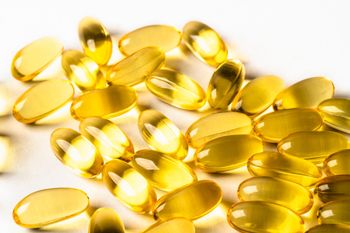
Bioavailability, Potency of Theacrine Enhanced When Combined with Caffeine, Study Suggests
The study established that, not only does the combination of Compound Solutions’ TeaCrine theacrine and caffeine enhance theacrine’s potency, it is also safe, with heart rate and blood pressure unaffected by co-administration.
A new eight-subject human, clinical trial found that TeaCrine, Compound Solutions Inc.’s (Carlsbad, CA) patented theacrine ingredient, shows greater bioavailability and potency when consumed with caffeine than when consumed alone. In this study, researchers sought to determine whether any pharmacodynamic interaction existed between theacrine and caffeine. The study,1 which was published in the Journal of Caffeine Research and conducted at the University of Tennessee and the University of Memphis, established that, not only does the combination of theacrine and caffeine enhance theacrine’s potency, it is also safe, with heart rate and blood pressure unaffected by co-administration.
Theacrine is the purine alkaloid found in the leaves of the Camellia kucha plant, and in cupuaçu (Theobroma grandiflorum). As Nutritional Outlook has previously
In the double-blind, randomized, placebo-controlled study, eight healthy adults were given either TeaCrine theacrine (25 or 125 mg), caffeine (150 mg), or a combination of theacrine (125 mg) and caffeine (150 mg). The study authors collected blood samples over a period of 24 hours, after which they analyzed the samples using liquid chromatography-mass spectrometry/mass spectrometry (LC-MS/MS) for theacrine, caffeine, and paraxanthine. Specifically, the researchers recorded such pharmacodynamics markers as heart rate and blood pressure, in order to establish the safety of the combination.
After analyzing participants’ blood samples, researchers discovered that, while theacrine had no impact on caffeine pharmacokinetics, the combination of caffeine and theacrine led to increased theacrine exposure, or enhanced bioavailability. Further, the co-administration of caffeine and theacrine “increased maximum plasma concentration and area under the curve of theacrine without altering theacrine half-life.” Finally, no differences in heart rate and blood pressure between the treatment groups were recorded.
Of the study results, Titlow said: “We’re proud to prove clinically what many have noted anecdotally: caffeine and TeaCrine are a complementary, dynamic combination.” Though TeaCrine has primarily been a fixture in the sports nutrition category thus far, Titlow said that it has potential for future use in other sectors as well. “TeaCrine can do much more, and the next five months will demonstrate a very significant expansion into the gaming/e-sports, cognitive performance, energy drink, and biohacking categories, he said. “The TeaCrine-caffeine combination is becoming foundational in the energy and focus categories.”
References:
- He H et al., “Assessment of the drug-drug interaction potential between theacrine and caffeine.” Journal of Caffeine Research. Published online July, 2017.
Newsletter
From ingredient science to consumer trends, get the intel you need to stay competitive in the nutrition space—subscribe now to Nutritional Outlook.





